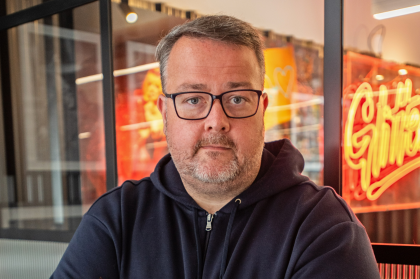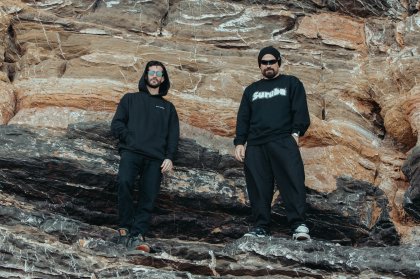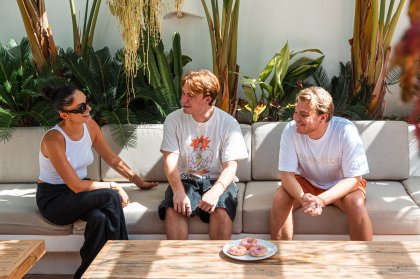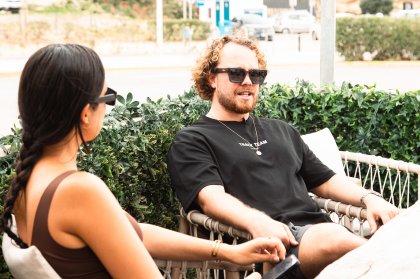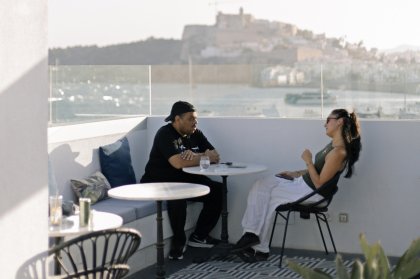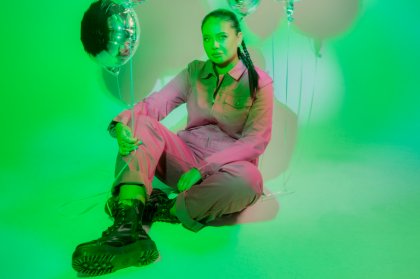“As long as you're being consistent with yourself and your art, then you're already creating a future for yourself” comments Chris, as he and production partner Reagan discuss what lies ahead for Dance Spirit. Wise words, and ones that must be some comfort when, at time of writing, their debut album has been released for mere hours, and the future of Dance Spirit more promising yet unpredictable than ever before.
Combining classical piano training and technical studio know-how on Reagan's part, with DJing expertise and a feel for rhythm from Chris, the pair form a creatively compatible duo, drawn together in their home town of Los Angeles by similar music tastes (how often it starts this way!) over eight years ago. A friendship with Anthony and Luca of Audiofly revealed an open door into the industry so that, once their music was ready, they had a remarkable platform in Audiofly's label Supernature from which to launch their studio album. Despite the fortuitous friendship, there's no naivety in the boys when it comes to the difficult realities of the music business. Part of this we can put down to good guidance, but for the most part they're just very switched on guys, as realistic about the patience and tactics required for the business as they are effusive about the quasi-religious experience of creating art in a great studio. Talking to Dance Spirit one feels as if the erratic, extreme, impossible-to-manage creative type is a relic of the industry's past; the typical success stories now involve down-to-earth but passionate creatives, with capable fingers in every pie within reach.
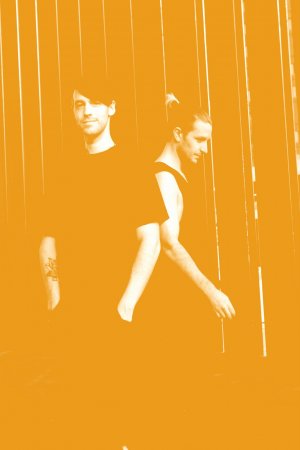
By 10am West Coast time the interview call from London to LA is underway, with all parties tea'd and coffee'd up respectively (zero points for guessing who has what). We start by talking about the album, a twelve-track offering of subtle yet satisfying grooves, introspective melodies and a wonderful collection of live instrumentation which fleshes out its character. These live elements give the album a longevity which proved to be more important than they could have known when recording, as it quickly comes out in conversation that ‘The Sun Also Rises' is finally seeing release more than two years since Chris and Reagan actually finished working on it. I ask if they weren't tempted to make changes in that time, but their philosophical sides seem to have kept any nervous re-writes at bay. “I think the live instruments lend a timelessness to the music,” explains Chris, “whereas normal dance music is usually a fashion statement of the moment. If [the album] sounded just like what was going on a couple of years ago I would definitely now be like, ‘uhh scratch that!' The fact that it is really organic and melodic makes me think it will be able to be listened to for a long time.”
“We kind of have a thing in the studio that you just don't go back,” he continues. “Whatever comes out of you in the moment and whatever your universe is giving you, well that's what you get. We've definitely grown up as artists since that time, but if we would have gone back and second guessed ourselves we would have completely messed it up.”
So why the two-year wait in the first place? “Most of it was just timing,” explains Reagan. “Making sure everything was in line for a proper release, making sure all the right outlets were lined up. Making sure you have enough content, between videos and art and assets. Getting a website together, getting the packaging together… It's easy to get caught up with what you want and when you want it, but it's important to be able to take a step back from that and not get too attached to the release date.” The lads seem to have learned early on the art of patience, persistence and crucially, presence. “One reason it was set back was because we were in different parts of the world [from Audiofly],” Chris says. “But when we lived in Barcelona last summer we were present in their city so they could give us the kind of attention that we needed as new artists. We realised we had zero profile in Europe and the guys wanted to help us build ourselves up there before putting out the album.”
"Those sessions where you're not quite all there because you've been out all night are funbecause you disengage the brain, and as soon as you take yourself out of the equation you're that much more in connection with the infinite awesomeness of the universe."
Despite growth in the US scene, a profile in Europe remains paramount. “If you're going to create content for a scene you need to be there with it so you can experience it and make it a part of your life,” Reagan says. “Because that comes back directly into the art that you're making.” The boys were keen to defend the West Coast, citing H Foundation and Mark Farina shindigs and more recently house label Culprit parties as evidence of a healthy dance music scene, but they're under no illusions as to where the cultural epicentre of their kind of music currently is. “The culture is being created out in Europe,” says Chris. “By the time that culture gets out here, it's already a trend.”
Nonetheless, it was LA that afforded the guys an opportunity for Dance Spirit that changed their lives. “I had been working for a guy who composes music for commercials as assistant engineer,” Reagan explains. “When I started he had just finished building his home studio and I helped him wire the whole place. It was crazy. We had to get a piece of dental floss, attach it to a piece of rope, attach the other end to a balloon, suck the balloon through the piping, pull the dental floss up…” I tuned out around here as he explained the complex inner-workings of the dental floss apparatus, but suffice to say Reagan knew the studio inside and out. “I had been working there for two years when we were finally approached by Audiofly to come up with an album, so I asked my boss at the time if we could come in on Sundays and use the studio and he was like, ‘sure!'”
 So it began. An album “produced only on Sundays after either a good night's sleep – or none at all” reads the press release, which perfectly explains the musical twilight zone that Dance Spirit's album sits in: either the calm before the storm or that post-party period where the electric energy from your night out meets the introspective calm of your wind down and inspiration often hits. The boys speak with unbridled reverence of their studio experiences, describing how both the specific space, and their Sunday-esque states-of-mind created the right petri dish for cultivating their work.
So it began. An album “produced only on Sundays after either a good night's sleep – or none at all” reads the press release, which perfectly explains the musical twilight zone that Dance Spirit's album sits in: either the calm before the storm or that post-party period where the electric energy from your night out meets the introspective calm of your wind down and inspiration often hits. The boys speak with unbridled reverence of their studio experiences, describing how both the specific space, and their Sunday-esque states-of-mind created the right petri dish for cultivating their work.
“We were fortunate to have a very, very professional studio to go into.” admits Chris. “The only way I could really describe what happens to you as an artist when you set foot in a place like that is it's almost like a religious experience, like stepping into a big gothic cathedral or something. No matter what was going on in the outside world, as soon as I got in that studio, everything but music went away. A serious tone washes over you and you're really able to focus and create.”
“At that point the studio itself becomes an instrument as well,” continues Reagan. “The space, the tone, the vibe… everything about that place really influences the overall sound of what it is you're working on… Those sessions where you're not quite all there because you've been out all night are fun, because you disengage the brain and as soon as you take yourself out of the equation you're that much more in connection with the infinite awesomeness of the universe — that much more of an open conduit to receiving what it is that the universe is throwing at you to create. It's fun.”
Chris and Reagan concede that there were certainly periods when the universe's infinite awesomeness was less accessible to them than others and, with studio time such a priceless commodity, creative block could be quite stressful. “You have to make a lot of bad art to get to your good art,” says Chris. “There were some weeks when we'd go in and be making nothing but crap. When you have sessions like that, in a setting like that where you know it counts — that's when it's easy to get frustrated.”
At other times, inspiration struck from unlikely places. Chris tells the story behind the muffled recording at the start of the track Lamentation…
“Reagan and I are always ready to record with our iPhones. We had been out at a club down town, and we were walking back to a friend's place a couple blocks away when some guy on the street, drunk as hell, starts singing Whitney Houston's I Will Always Love You. This guy was just belting it out and it's echoing up all the buildings… so we stood across the street with our iPhones and recorded it. At some point someone's leaning out their window like, ‘shut the fuck up!' but this guy was just feeling it — he was not going to stop singing Whitney Houston.”
Dance Spirit may have more in common with Random Drunk Guy than they realise. In the two years since completing ‘The Sun Also Rises', the pair has worked on new music every day. One gets the feeling that no matter what the outcome of this album release, they are going to keep feeling the music and, in their own way, they are not going to stop singing Whitney Houston.
View this feature in the Ibiza Spotlight Magazine, Issue 009.
WORDS | Jordan Smith
